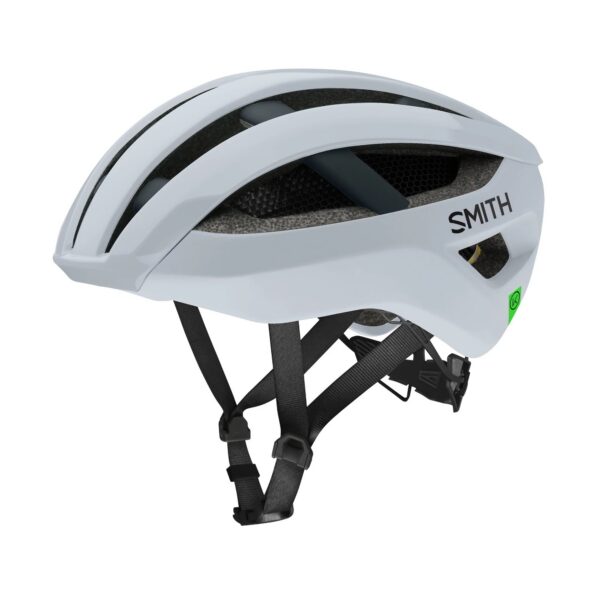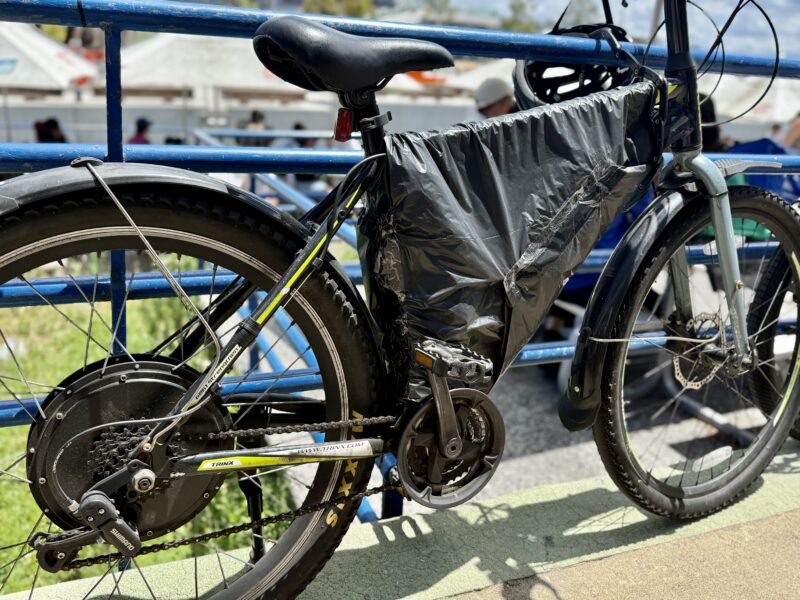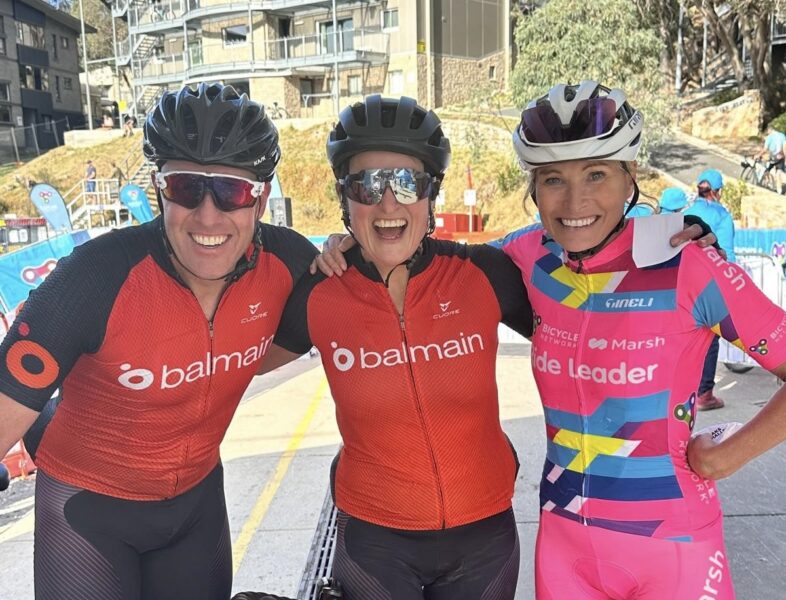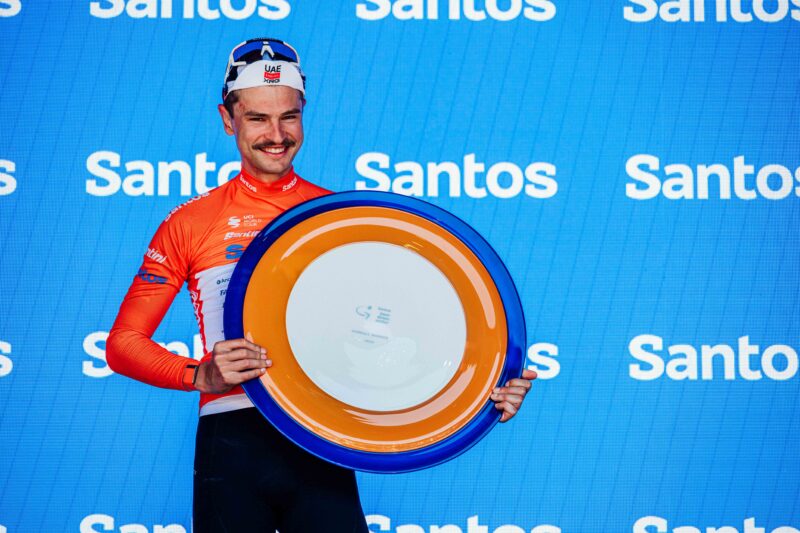Handcycles and hills
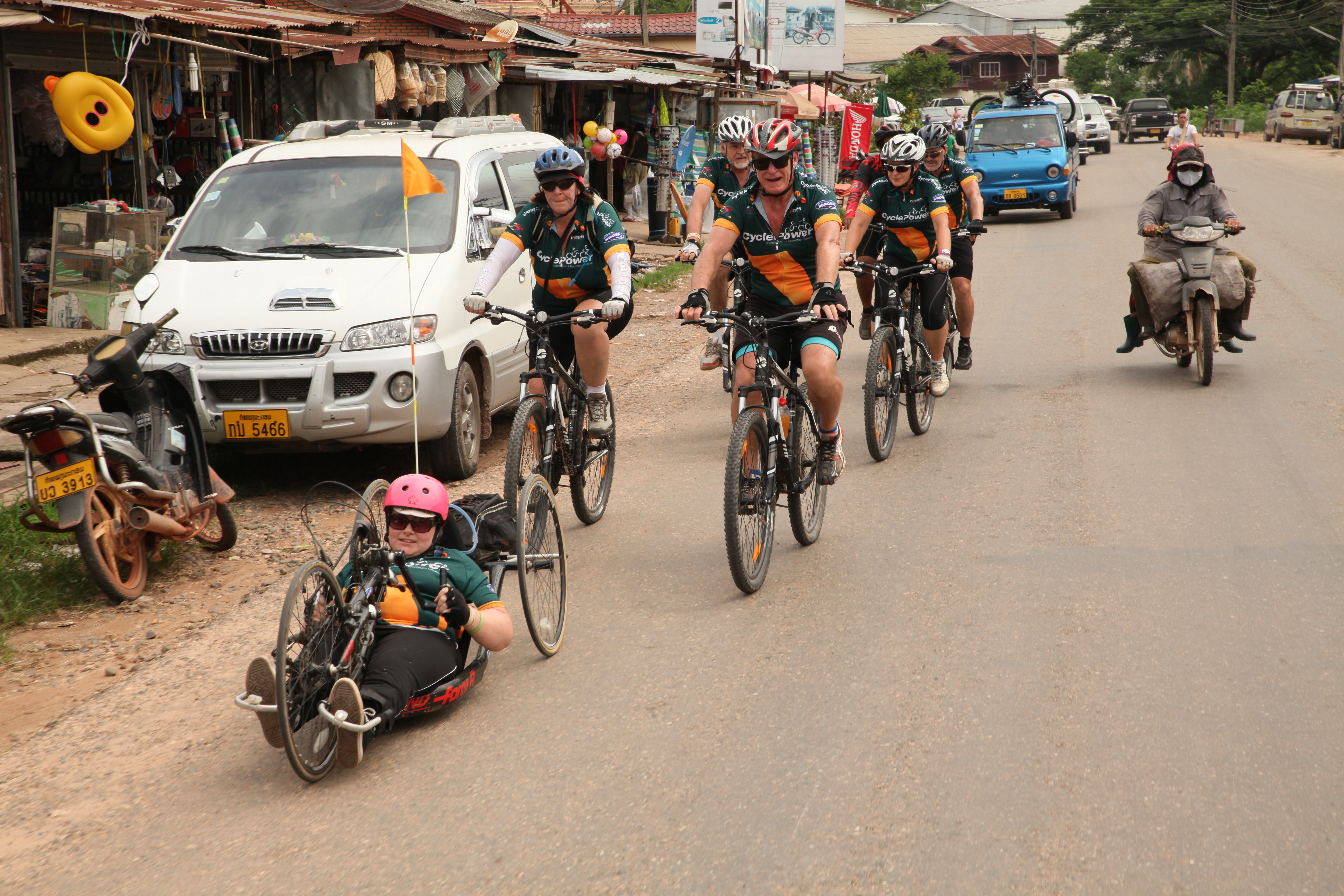
Hayden Thomson hears from two riders who proved—by handcycling through Laos— that disability doesn’t limit your ability to take on a challenge and inspire.
After training for six months, Alex Gale‐Grime was well and truly prepared for the long ride ahead. After all, she had previously ridden CyclePower charity challenges in both Fiji and Thailand, and so, had “a rough idea” of what to expect. But for her best friend, Rosie Jenes, the handcycling adventure was filled with unknowns.
Rosie, who describes herself as “a bit allergic to exercise”, was quite hesitant at first when her friend first suggested joining an international bike ride which would involve spending over a week on a bike in the tropics, but with some gentle encouragement and support, Rosie was on a plane destined for Laos.
A group of eleven riders tackled the 2015 CyclePower challenge, with an aim to ride more than 500 kilometres through the landlocked South‐East Asian nation. The team landed in the UNESCO World Heritage‐listed town of Luang Prabang—the site of the former royal capital, and later the French colonial outpost—perched on the banks of the Mekong and surrounded by jungle. The team rode south, traversing mountainous countryside, until they arrived ten days later in Vientiane; arguably the region’s sleepiest and most tranquil capital city.
“It turned out to be really good. It was not what I expected. I had expected to hate the whole thing, whinge and cry but none of that happened,” said Rosie.
For the team, Laos lived up to their high expectations. Alex reported that the countryside was stunning, the people were friendly and helpful, and the food was subtle and delicious.
“The people were amazing. They were so nice, so welcoming, and they were amazed, they did not expect us to be coming along at all. We’d get to the start of a small town and they’d be yelling,” said Alex.
Although barely able to communicate, Alex and Rosie found immediate connections were easily made with the welcoming locals. Although we must have seemed as “strange new people”, Alex and Rosie describe kids running along the road as they rode through villages.
But the CyclePower team had to re‐assess their plan after the first day of riding proved the terrain and weather was not quite as they had expected.
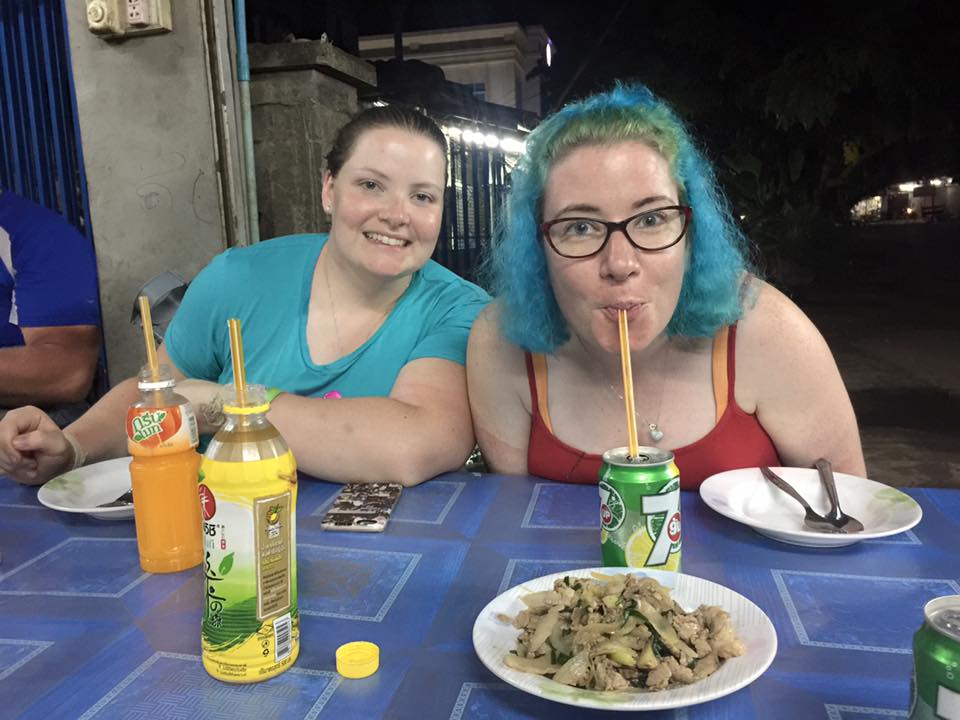
CyclePower is a fundraising initiative which began back in 2011 driven by a belief that participation in sport and recreation should be enjoyed by everyone. Disability Sport and Recreation is a health‐promoting peak organisation that invented the concept.
Combining the challenge of long‐distance riding with a chance to make a positive impact on the lives of the locals they meet, CyclePower provides sport and recreation opportunities to people with disabilities and aims to showcase how involvement in sports can be a powerful tool for connectedness and empowerment.
The inaugural ride in 2011 dropped a group of riders in Vietnam’s capital Hanoi to begin a 540km ride south through the mountainous, humid and densely forested country to Ho Chi Minh City. Their journey was joined by five local disabled athletes and it was so successful, raising $80,000, it inspired a series of tours to other destinations.
After heading to Cambodia in 2012, Fiji in 2013 and Thailand in 2014, the 2015 ride headed to Laos. Twelve riders participated in total: four were disabled using handcycles and seven were able‐bodied and rode conventional bikes.
The ride was supported by—amongst other organisations—the Uniting Journeys Foundation, which works with marginalised groups both in our community and host country communities with travel initiatives that have worthwhile goals (but insufficient funds).
“It was very hilly,” said Rosie, who’d anticipated the challenge but perhaps with less elevation. “I woke up the whole plane by going ‘Oh my god!’ because the mountains were just ridiculous and I’d never seen anything like it.”
“The weather was ridiculous too”, added Alex. “The first couple of days it was warm, but it was raining as well and we’d get covered in mud—particularly on the handcycles because the wheel is right in your face.”
To make touring even more difficult the riders were battling 40 degree heat with humidity with no protection from the sun whatsoever. It was the handcyclists again who were doing it the toughest.
“The pavement was meltingly hot and because we were on handcycles and pretty much lying only a few centimetres off the ground you could really feel the heat. As soon as the able‐bodied two‐wheel cyclists came down to our level they could immediately feel the heat,” Alex said.
The handcyclists weren’t driven by reaching great speeds or long distances, due to the nature of their machines and the challenging conditions. However, with the help of two support vehicles, stocked with water, food and spare equipment, and with the encouragement and support of team‐mates, the group thrived in the adversity and completed their objectives.
“We’d wake up in the morning, have breakfast and then probably ride three hours, before breaking for lunch and then ride another three hours after lunch,” Rosie explained. “We set off into little groups. People at the front—they go for gold—and those at the back just hung together, so you’re never really by yourself.”
The group was made up from a diverse bunch. Rider Ray was the eldest at 67, while Alex, at 22, was the youngest. If spending 10 days straight with your best friend wasn’t long enough to start getting sick of one another, many members of the group met each other for the first time at the airport.
“The group was so supportive of each other. If anyone was having difficulty, someone would always be there,” Alex said.
“We really bonded over there, everyone stuck together and we’ve made lifelong friends.”
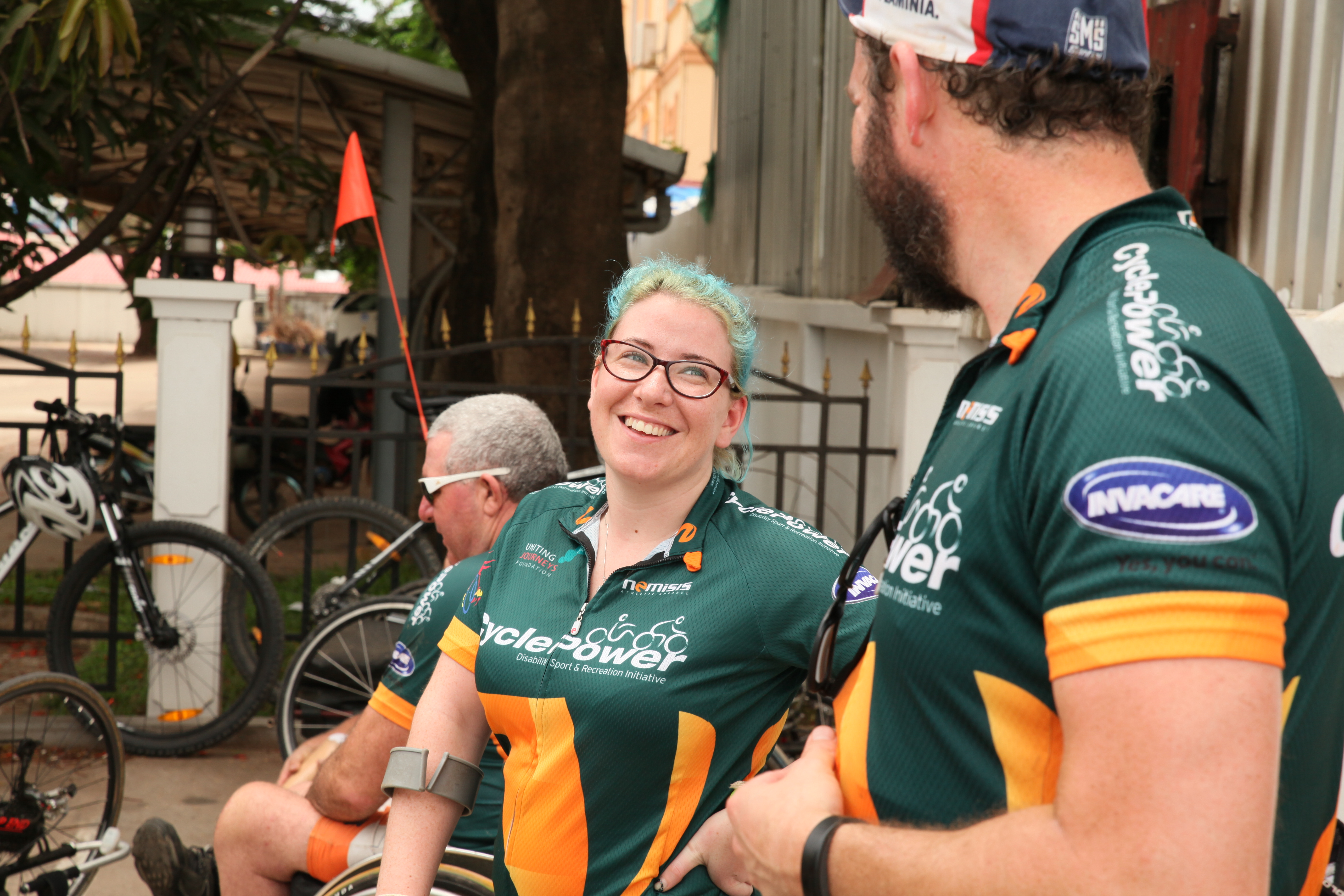 Although Alex had trained for six months prior to the ride, she was constantly challenged throughout the trip. Nonetheless, she never questioned her desire to be in Laos on a CyclePower challenge.
Although Alex had trained for six months prior to the ride, she was constantly challenged throughout the trip. Nonetheless, she never questioned her desire to be in Laos on a CyclePower challenge.
“When there was just dirt, it was hard to get through, plus the stones on the road made you need to weave. The corners were so sharp that you’d have to go really slowly. I think I may have strained my arm from always having my hand on the brakes the whole time,” she recounted. “But the people were lovely and the scenery was beautiful—so green. There’s nothing quite like it.”
The CyclePower adventure raised money for the Lao Disabled People’s Association, the peak advocacy body for people of all disabilities in Laos. Of all countries, Laos bears arguably the worst burden from landmines and unexploded ordnance (UXO). In 2012 the Guardian reported, “During the Vietnam War (in which Laos was officially neutral) US planes dropped 260 million cluster bomb sub‐munitions on the country—of which around 80 million did not explode. A national study estimated that 50,000 people have been killed or injured by UXO since 1964, and that there have been 20,000 casualties since the end of the war. Nearly 50 years later, Laos still averages four new victims every week.”
“There are a lot of people with prosthesis,” said Rosie. “They don’t go out or do anything at all, so we were showing them that you can do things. We played basketball against the girls disabled national basketball team. They had a tiny little basketball court and needed to pay $100 every time they use it.”
“We aim to visit third world countries because they don’t have the opportunities like we do, especially for their disabled—they get nothing. We showed them we’re capable of leading a normal life,” Alex said.
The group donated four sports wheelchairs and other requested sports equipment including basketballs, first‐aid kits, water filters, ball bags and whistles.
Disability Sport and Recreation Victoria offer a range of sport and recreational equipment in Melbourne for people to try before investing in equipment that can be very expensive (members of the team rode custom‐made handcycles which can cost in excess of $9000).
“We actually had a come‐and‐try day, way before we were thinking about these cycling trips. So it is very handy to have a place to try all the gear and give it a go,” Rosie said.
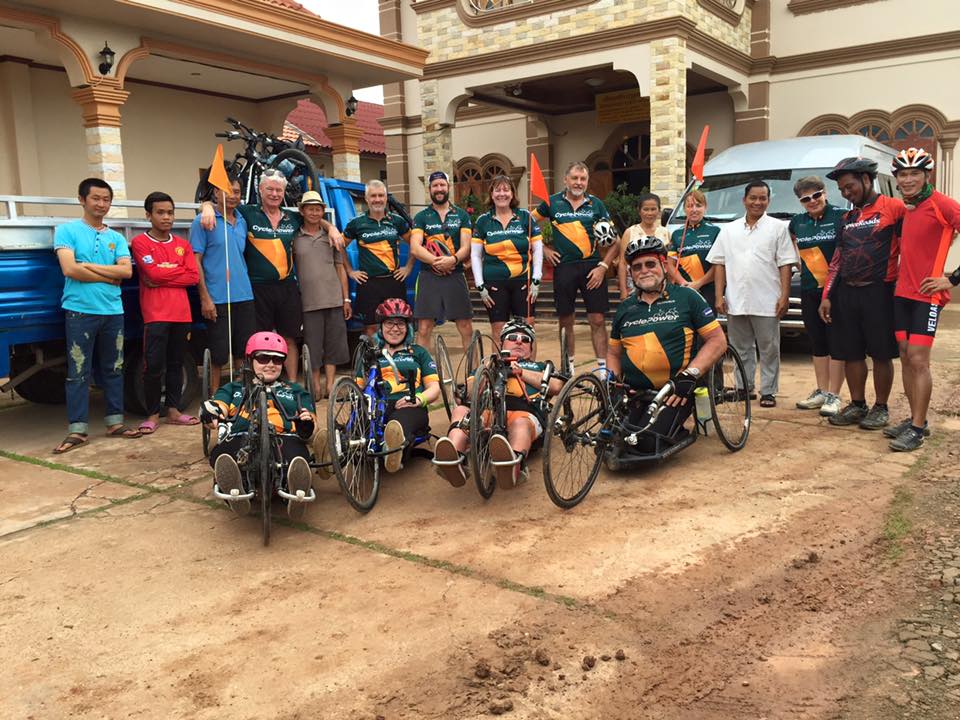 Although this was a life‐changing experience and one not to be missed, it very nearly didn’t happen for Alex.
Although this was a life‐changing experience and one not to be missed, it very nearly didn’t happen for Alex.
“You usually have to fundraise around $4,000 dollars and every challenge it gets harder. First year, I set up my own Facebook page and people were happy to donate. The second year half of the same people were donating. Then the third year no one donated and I barely raised a couple of hundred dollars,” she said.
With Rosie by her side, Alex organised sausage sizzles at Bunnings and trivia nights to raise the funds.
“It was very time consuming and almost became a part‐time job,” said Alex.
“It’s nice to say I’m fundraising to go overseas and show other people with no opportunities that we can do things: we don’t have to sit at home, on the couch and watch television. It was so nice to show people what we’re capable of.”
This year, CyclePower is riding from Siem Reap, the gateway to the Angkor temples in Cambodia, on a 13-day, 500km adventure through to Vietnam’s bustling southern capital of Ho Chi Minh City. The group is taking 17 riders, seven who have a disability—including two members of the Australian women’s wheelchair basketball team, the Gliders.
With the Gliders having narrowly missed out on qualification for the Rio Paralympics, team member Leanne Del Toso is philosophical about the trip. “Although it’s disappointing that the Gliders won’t be representing Australia at the Paralympics, I get to ride through Cambodia and Vietnam on CyclePower 2016,” she said. “CyclePower is an opportunity to showcase who we are and what we stand for. The benefits are bigger than the individual. It’s my way of giving back to a community that has supported me.”
Disability Sport and Recreation encourages everyone interested in the initiative to get involved in any way possible—whether by donating, or finding out more about the motivational participants. As for Rosie and Alex, they want to encourage everyone to support the CyclePower initiative and to get involved in some capacity.
“It was a really awesome experience, everyone should give it a go. Even if it’s six kilometres at least you’re out there and trying your best. Everyone’s so supportive, there’s no reason why anyone can’t do this,” urges Rosie.
“Personally it is extremely satisfying and you get to see the immediate benefits you’re having,” says Alex.
“Obviously there’s pessimistic people out there that act so sorry for you and say your life must be so hard, but look at us. We do so much.”
“I wanted to prove what people with disabilities can do. Even when we train here in Melbourne, people ask me questions like ‘what’s the purpose’?” Alex explained. “I felt like I inspired people. A lot of (disabled) people we talked to became very interested as well. They just have to get bikes and do their training.”
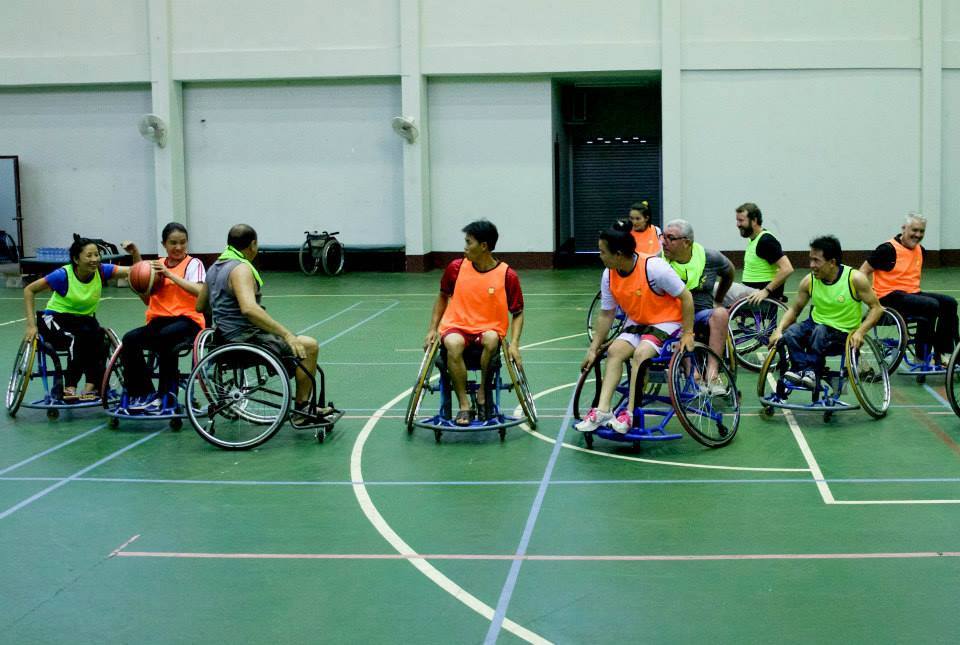
Ride On content is editorially independent, but is supported financially by members of Bicycle Network. If you enjoy our articles and want to support the future publication of high-quality content, please consider helping out by becoming a member.



